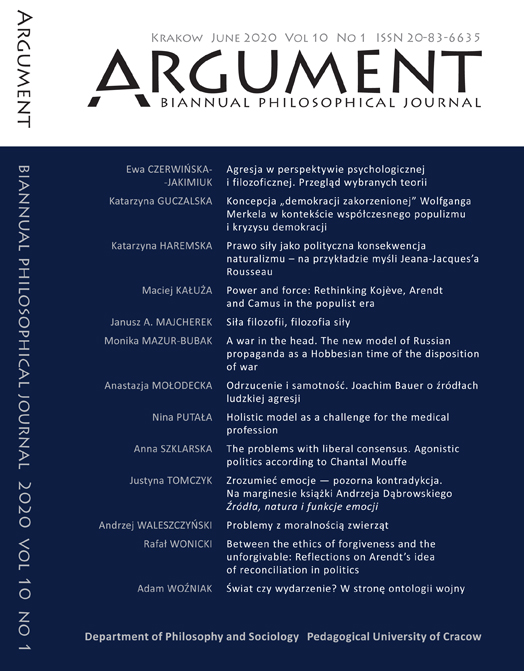A war in the head. The new model of Russian propaganda as a Hobbesian time of the disposition of war
DOI:
https://doi.org/10.24917/20841043.10.1.7Keywords:
cyber‐propaganda, Russian Federation, hybrid war, Thomas HobbesAbstract
A major part of research into cyber‐propaganda discusses the following components it uses: disinformation, creating fake news and employing so‐called farm trolls. Actions of this kind do not correspond with the classic division of soft and hard power, since neither can their goals nor the means they utilise be unambiguously defined as coercion, payment, or attraction (Nye, 2009; Mazur‐Bubak, 2020). In my article, I describe the hidden means of propaganda employed by the Russian Federation that are additionally supported by a process of armament which cannot be classified as an act of disinformation. These actions aim at achieving a specific type of psychological vantage which stems from an atmosphere of fear, lack of trust, and enmity created within European societies as a result of the incoming information about Russia’s increasing military potential as well as new, dangerous means and resources that could be utilised in combat. Such an atmosphere is referred to as a “war in the head”, and it pertains to the personal belief that a military conflict is imminent, expressed by individual citizens including those in key public offices. This phenomenon, while bringing to mind Hobbes’ state of nature which encompasses the distinct readiness to fight, directly afflicts the internal and international security of European states. Such a situation directly afflicts the internal and international security of European states, for the state of fear and distrust leads to the dismantlement of public democratic institutions, and it does not help in the search for effective methods of solving either internal or global problems (Nussbaum, 2018).


